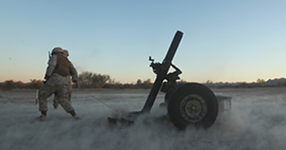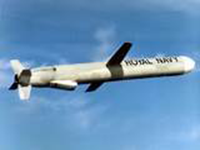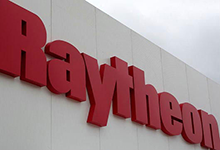Raytheon’s new precision guided projectile hits the mark in recent testing
 PERM will provide US Marines with mobile, one-shot accuracy
PERM will provide US Marines with mobile, one-shot accuracy
YUMA PROVING GROUND — Raytheon Company (NYSE: RTN) successfully test fired four Precision Extended Range Munition (PERM) guided projectiles. Three of the GPS-guided rounds flew to the required range and hit within the required distance of their targets. One round was fired to the minimum range requirement and impacted just a few meters from an off-axis target.
The tests validated the functionality and performance of the Raytheon design. Fired from the U.S. Marine Corps M327 120 mm Rifled Towed Mortar, the four rounds met all test objectives.
“These firings, combined with earlier environmental lab and integration tests, demonstrate PERM’s maturity,” said Dr. Tom Bussing, vice president of Raytheon’s Advanced Missile Systems. “The testing also shows the high level of integration between the munition’s guidance, navigation and control functions.”
PERM is designed to provide U.S. Marines with a lethal, extended range, high probability one-shot capability. The munition is a key capability of the Marine Corps Expeditionary Fire Support System. EFSS is a close support, all weather, quick response indirect fire system.
Raytheon and Israeli Military Industries jointly developed PERM. The two companies are expected to deliver 42 PERM rounds to the U.S. Marine Corps for additional testing later this year.

